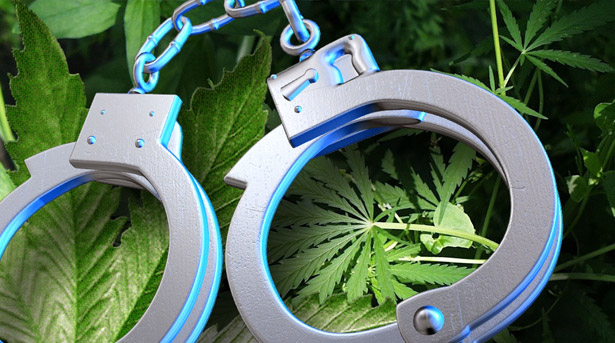
Are the Feds About to Reschedule Marijuana?
The United States government may be one step closer to recognizing marijuana for its medicinal benefits. Federal health officials were asked earlier last week by key members of the Drug Enforcement Administration to begin researching whether marijuana could be reclassified without risking apocalyptic ruins.
Reports from the Food and Drug Administration’s Deputy Director for Regulatory Programs, Douglas Throckmorton, indicates that DEA officials asked him during last Friday’s congressional hearing to conduct an analysis aimed at determining the possibility of rescheduling marijuana.
Marijuana has been under the DEA’s most restricted drug classification for over 40 years. The high herb, which was crippled with its classification under the Controlled Substances Act of 1970, resides in the company of other drugs the government has deemed dangerous with no medicinal value, like heroin, LSD, and ecstasy — a major technicality that has essentially made marijuana research impossible outside the National Institute for Drug Abuse.
Although the FDA conducted a similar analysis back in 2001 and then again in 2006, there is speculation that positive public opinions surrounding marijuana has finally backed the feds into a corner, which could persuade them to either take a closer look at finally downgrading its classification or simply leave it as is for another eight long years.
But how much longer can marijuana actually remain in the same ranks as powerful narcotics like heroin?
As it stands, 22 states and the District of Columbia have legalized marijuana for medical purposes, and with residents of Colorado and Washington now chiefing the reefer without fear of prosecution, it seems that even marijuana’s fiercest opposition would be embarrassed to admit that they’ve wasted all this precious time trying to stimulate a lost cause.
“We’re in the process of conducting an eight factor analysis,” wrote Throckmorton in his testimony. However, he did not give any indication if he believed the analysis would lead to marijuana being reclassified this time around or whether he would advise in favor of a change.
A statement posted to the agency’s website last week stated that, “Although the FDA has not approved any drug product containing or derived from botanical marijuana, the FDA is aware that there is considerable interest in its use to attempt to treat a number of medical conditions, including, for example, glaucoma, AIDS wasting syndrome, neuropathic pain, cancer, multiple sclerosis, chemotherapy-induced nausea, and certain seizure disorders.”
Unfortunately, even if the FDA decides to downgrade marijuana’s Schedule I classification, the agency will then be challenged to obtain the approval of the National Institute on Drug Abuse as well as the Department of Health and Human Services before reporting back to the DEA, which could be problematic for the cause.
Earlier last week, NIDA director Nora Volkow stated that she believes using marijuana, even in experimental situations, is a highly addictive trend that will come back to haunt the nation if it is ever made legal. She then went on to say that the NIDA is currently in the process of developing marijuana addiction treatments to combat the addiction outbreak that will likely occur once the herb is proven a detriment.
